Why is My Dog Peeing on My Bed?
As an Amazon Associate, I earn from qualifying purchases. We may receive a commission for purchases made through these links. This site also contains affiliate links to products besides Amazon, like Etsy. We may receive a commission for purchases made through those links too (at no additional cost to you).
Why is My Dog Having Accidents?
It can be frustrating when you have put in the work to get your dog potty trained and they suddenly start having accidents again. Many times, the assumption is that the dog in question is having these accidents out of spite or that they are impossible to train but the real reason could be either behavioral or medical. The only way to completely solve a problem is to understand what is causing it. Find out what to do to answer the question “Why is my dog peeing on my bed?” and what you can do to stop the accidents.
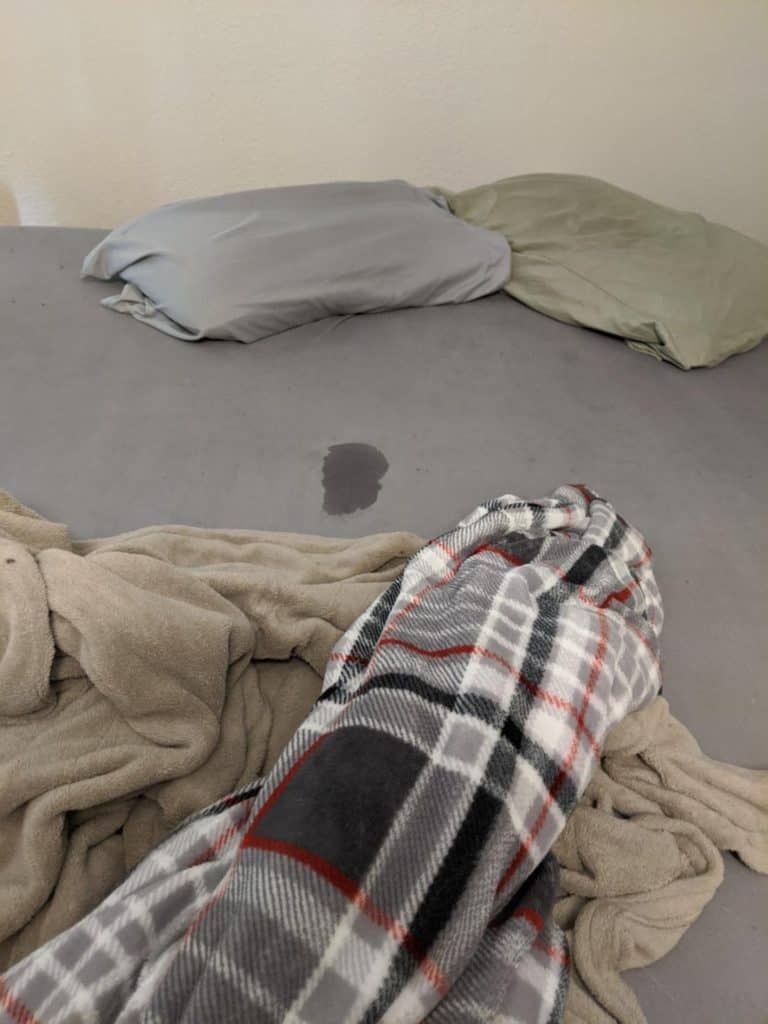
The best thing for your dog is for you to take the time to figure out what is the real reason for the potty accidents in the house. That means that it is time to put your detective hat on and to get to work. Follow these simple steps to figure out what is causing your dog to have accidents in the house and what steps you can take to solve the problem.
*Here at Pennies, Places, and Paws, we encourage open and frequent communication with your veterinarian so you can make knowledgeable decisions on what is best for your pets. I am not a vet, and this information should not be taken as medical advice. Please check with your veterinarian if your dog appears sick or injured and do not attempt to treat them on your own as this may do more harm than good.*
Diapers and Cleaning Products
While you are trying to figure out the root cause of why your dog is peeing the bed, there are some great reusable diaper options available to help keep your house clean. There are different diaper types depending on whether your dog is female or male.
The female diaper may take several attempts before you learn how to put it on properly so your dog isn’t able to take it off. Our husky, Emma, also acted like she couldn’t walk the first few times while wearing it, but this only lasted a day or two.
I can personally attest to the CuteBone dog diapers and am amazed at how absorbent they are. And they have some really cute designs! Be prepared to have them go through several dry cycles before they are completely dry because they hold moisture so well.
Don’t forget to thoroughly clean the area to remove any remaining scent. If you don’t, your dog will likely continue to mark the area. This is a natural behavior but can be stopped by removing the urine scent. The smell may only be noticeable to your dog, so watch closely to see if you may need to re-clean an area. You may also want to invest in a carpet cleaner if your dog has been a repeat offender. We have a Bissel and it has been a lifesaver!
Is it You or Them?
It may be tempting to instantly assume that the sudden bathroom accidents are your dog’s fault, but unfortunately many times the accidents may be due to something you did or did not do. Take a moment and start thinking about the situations around each accident. Here are a few questions to ask yourself to see if the accidents are because of you or them:
- Are you taking your dog out often enough? Try taking them out more often to see if this makes a difference.
- Are you waking up to take your dog out if they need it?
- Are they drinking too much water before bed? You don’t want to prevent your dog from drinking water (especially for seniors) due to health reasons, but try not to let them chug water right before bedtime.
Keep in mind that as dogs age, they may need to go out more often than before. If you are sure that you are taking them outside to the bathroom as often as they need you to, it is time to narrow down the other potential reasons for the accidents in the house.
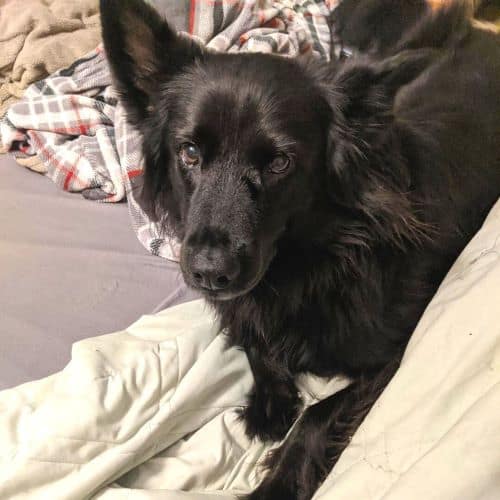
Is it Behavioral or Medical?
There are two main categories for any problems that your dog may be having: behavioral or medical. Depending on which category is causing the problem, there are different ways available to fix the issue. One of the important things to keep in mind is that your dog is most likely not having accidents in the house ‘just because’. There is most likely an underlying cause for the problems. Here are some questions to help you decide whether the issue is due to a behavioral or medical problem.
- Did the accidents start happening suddenly or has it been gradual?
- When is it happening?
- Do these accidents happen more often during the day or a night? Are they awake or asleep/relaxed?
- Does it occur after a certain event?
- How often is it occurring?
- Has anything recently changed in the house or the dog’s routine?
- Are the humans around the dog more stressed than usual?
After answering these questions, you can start to look for a pattern in the accidents or see if they are tied to an event. It is also helpful to keep track of the accidents that are happening to help you and your vet decide on a course of action and the potential causes. An additional factor to keep track of is how much water your dog is drinking. If they have started drinking more than usual, this could be a sign of a larger medical problem and you should make a vet appointment right away.
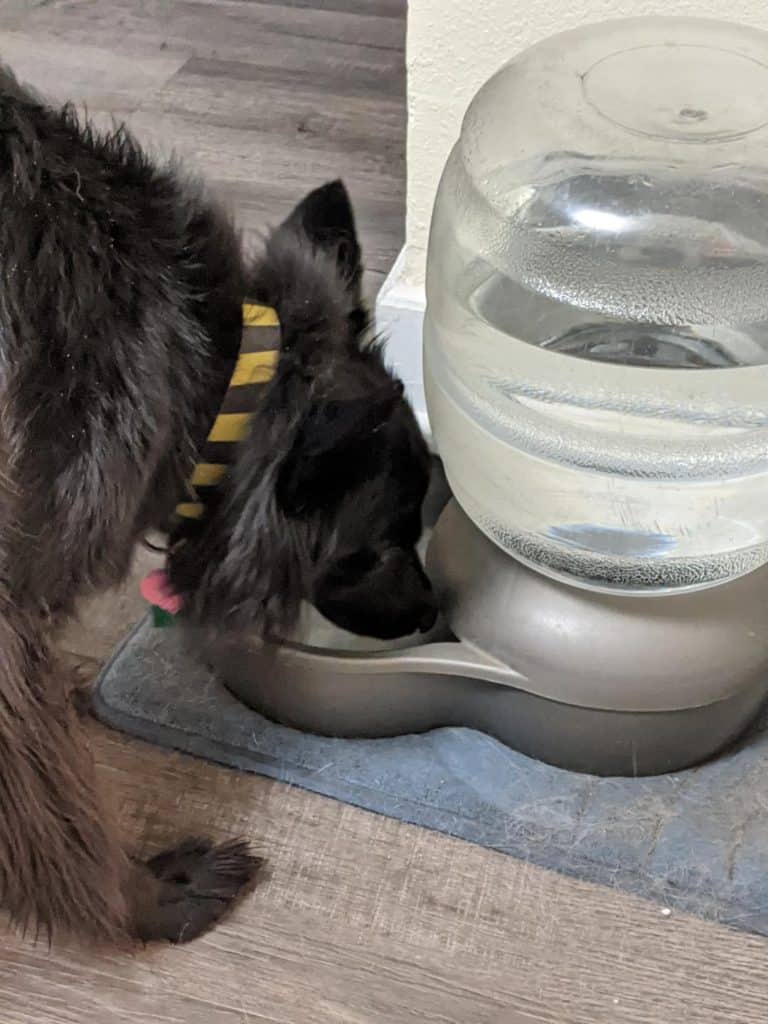
If the accidents started suddenly, your dog might be stressed out due to sudden changes or be picking up on your higher stress levels. If this is the case, you can try to eliminate the stressors or begin to work with them to help them deal with their anxiety.
If the accidents typically happen at night (when they are relaxed or asleep) they may have a hormonal imbalance and suffer from hormonal incontinence. If the accidents occur frequently, it could be a urinary tract infection.
Medical Tests and Treatments
Make sure you prepare for your vet visit and have as much information as possible around the circumstances and frequency of the accidents and water intake. This info will be vital to helping your vet know what potential issues your dog may be having and what the best way to proceed will be. They will most likely want to run a urinary analysis. This is a test to check your dog’s urine to make sure their urinary system and kidneys (among other things) are healthy. It is also used to diagnose diabetes and urinary tract infections. Depending on what is found from the test results, the doctor will know how to proceed.
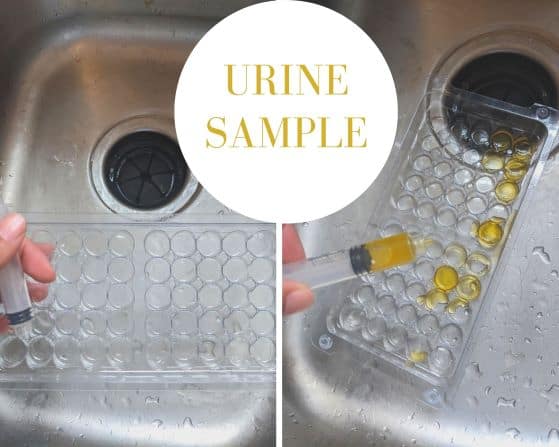
If your dog has been drinking more water than normal, it could be a sign of kidney disease and your vet will work out a treatment plan depending on what the test results show.
UTIs are quite common and if your dog has one, antibiotics will most likely be prescribed. If you notice that UTIs are a frequent issue for your pet, you may consider talking to your vet about adding cranberries or a cranberry supplement to their diet (as mentioned in the Beneficial Fall Foods post).
If your dog’s accidents happen when they are relaxed or sleeping, there is a good chance that they are suffering from hormonal incontinence. Hormonal imbalances can lead to incontinence in dogs of all ages (male and female) and occasionally even in cats. It is most common in older female dogs that had been spayed. Basically, a low level of estrogen can lead to the urethral sphincter (the muscle that controls urinating) relaxing by accident when the animal is relaxed or sleeping.
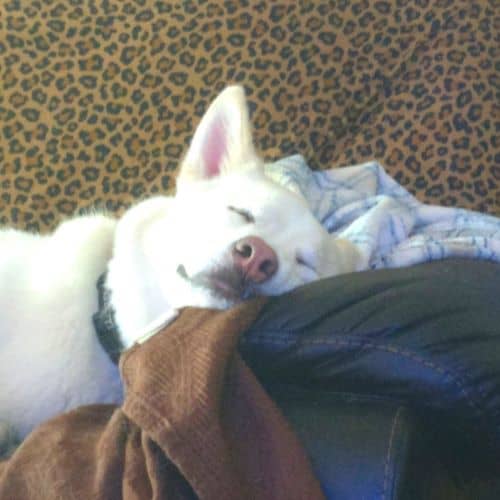
Medications for Hormonal Incontinence
There are currently two FDA-approved drugs for hormonal incontinence in dogs; Proin and Incurin. Proin has been around longer and has 2 versions of it (regular and extended-release tablets) and the regular form of Proin is a twice-a-day medication. The dosage amount is adjustable according to the need of the dog. Side effects can be vomiting, loss of appetite, increased agitation, diarrhea, tiredness, confusion, weight loss, weakness, and fever, to name a few.
Incurin is a once-a-day tablet (after a loading dose of 2 tablets once a day) and surprisingly the dosage is the same no matter what size dog you are treating. The side effects could be loss of appetite, vomiting, excessive water drinking, or a swollen vulva.
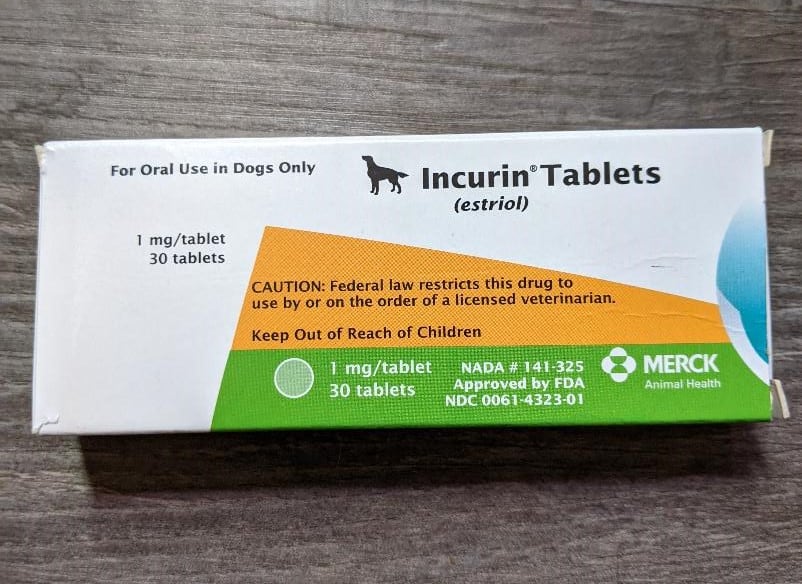
These two drugs work in different ways; Incurin is the only FDA-approved drug where the main ingredient is estriol and Proin is the only FDA-approved drug whose main ingredient is phenylpropanolamine. Estriol is a weak estrogen that occurs naturally in the body and helps with the hormonal imbalance that causes incontinence. Phenylpropanolamine works to strengthen the sphincter muscle tone in the urethra so that no more urine leaks out when they are relaxed. This means that if one drug doesn’t work, there is a good chance the other one will.
Conclusion:
Remember that any behavior change can be a call for help from our pets. This means that if your dog has suddenly started to have accidents in your house, it could be caused by a medical or behavioral issue that they need help with. Once you have taken the time to find out what is causing the problem, you can begin to fix it. Don’t worry, most medical issues (and even some behavioral ones) can be easily solved by medication. As always, please discuss any issues and treatment plans with your vet. The more information you can bring to your vet about the situation, the better able they will be to create the best treatment plan.
Pin For Later:
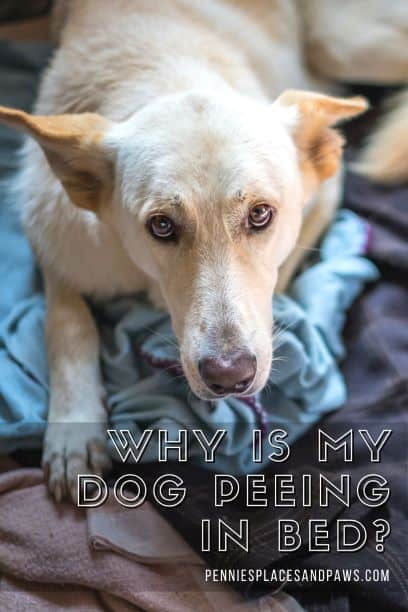
Amazon and the Amazon logo are trademarks of Amazon.com, Inc, or its affiliates.

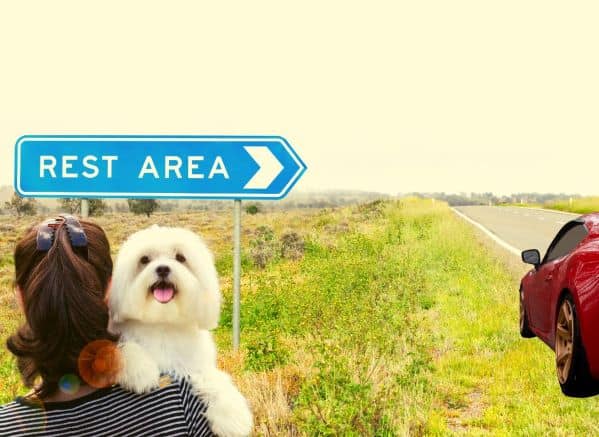
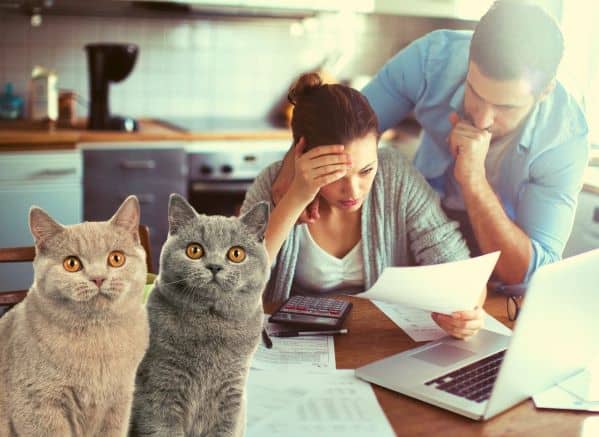



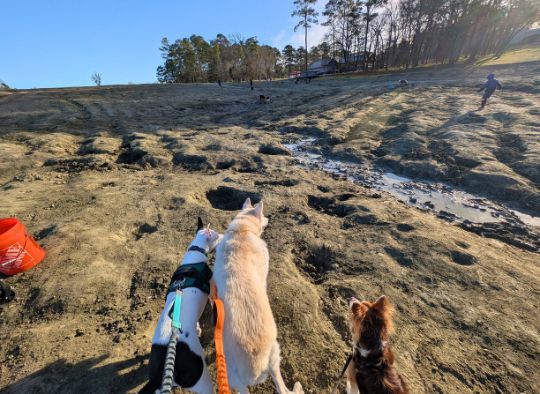
Interesting regarding the hormone imbalance and affects. I would not have thought about that.
This is something that I never knew about even though I’ve had and have worked with many dogs
Interesting…we don’t have a dog (yet) but are thinking about getting one in the next year or two. I love how you were so careful to rule out the possibilities and figure out what was really going on.
Thanks! I believe its important to go the vet appointments armed with as much info as possible to help the vet figure out what’s going on 🙂 Bonus if it ends up saving us a vet visit!
Awe…poor puppy. Our dog had these issues and our vet thinks its because she was spayed too early from the pound before we adopted her when she was 10 weeks old. Every once in a while when she is sleeping, she leaks.
Kiara was spayed very young also at the rescue we got her from (I think it was 8 wks). Glad you found out what was causing your pups accidents!
Awww! Helpful information. So glad you could share from all you learned with your sweet puppy.
Interesting. That is good there was a fix!
I’m happy you were able to find the cause and a solution. Quality of life is so important.
Love hearing about older puppy dogs – we always focus so much on puppy stuff!
Thanks! I like to share as I learn 🙂
Glad you were able to help your pup (and you guys)! This is all good info to know as we have several older dogs between us and our family.
Ours are all becoming “senior” so we are learning a lot!
What a tough situation!
YIKES! This can be a big problem!
Good job on keeping records about what was happening. I’m sure that saved a lot of time and work for the vet to narrow down the problem. So happy it was an easy fix.
Aww, poor baby. I’m sure it is tough for the pup too 🙁 Great tips that I will keep handy as my husky is getting up there in years. He just turned 12!
Who knew? This is great advice. I hope I don’t have to go there with my pup, but good to know.
Very interesting! Thanks for sharing.
Such a great owner, sleeping down with her! Narrowing issues are certainly challenging with our fur babies!
This was so interesting; especially how they figured out how he has incontinence.
Glad you were able to find a medicine for her that worked! She looks like a sweet dog.
This was very informative. I had no idea spaying them early caused incontinence in or pups. Thank you, for sharing.
I hope it can help others- I had no idea until recently and I have had many dogs!
If I ever get a dog (like my son begs for!), this will be very helpful to know about. Thank you.
We had this issue with one of my senior cats a few years back. It was the first of many problems that lead us to putting him down a few years later. Its very sad when our pets decline in health. Glad you found something that worked with your pup.
Wow. I had no idea about hormonal incontinence as a potential cause of peeing in the bed. This is new to me. Having a pet pee in the bed due to an event or unusual circumstance has happened to me too. Once that situation was resolved – no more peeing. Thanks for sharing this information.
No problem! Now that we have a dog that has hormonal incontinence I am running into other dog owners everywhere that have the same issue. I am amazed that it’s not talked about more!
I’ve for sure noticed that as my Kitsune gets older, he very much appreciates more frequent bathroom breaks. Thankfully he’s never had an accident on our bed. I remember one time, years ago now, he had a few accidents on the kitchen floor which was very unusual for him. He ended up having a UTI that cleared up quickly with antibiotics.
We’ve dealt with UTI’s too. Poor pups- they are always a bit down if they have an accident
Great post especially with Layla aging but she has started barking when she wants to go out and I take her immediately although she is sleeping through the night phew.
All of our dogs are good at waking us up if they need to go, that’s why it was so weird that Kiara was peeing on the bed. Luckily with the meds we are all good again!
I like your question. Is it behavioural or medical? This is so important and something that people may come to late as they are mad at their dog for peeing in the wrong place. It’s deep breath and let’s research this time when that happens and your check list is important – it will help people locate and solve the issue.
Being prepared and being able to act in a way that helps your dog is vital. It stops you feeling powerless doesn’t it? The old saying ‘knowledge is power’ is spot on. Know what’s happening and act.
Thank you! I think that it’s the first question we should ask whenever anything changes with our animals. You can’t help them if you don’t know what’s wrong 🙂
I’m glad you pick this topic–it’s such a common problem. My do has been incontinent since she was 2 years old. It comes and goes and it has to do with the amount of bouncing she does; how full the bladder is has little to do with that.
Recently, a client of mine was complaining about her dog peeing in front of her to spite her. It took quite an effort but I was able to explain to her that it was submissive urination which she eventually confirmed during a chance incident.
It is easy to assume that the problem is our dog’s attitude when in fact it is typically something that we the owners can help fix. Especially if it ends up being a medical issue that goes unchecked for too long. Even if it’s tied to age, there can be a pretty easy fix to address the issue 🙂
I never knew that a hormonal imbalance could be the cause of accidents. Thank you for emphasizing that medical needs need to be looked into. Too many people automatically think this problem is behavioral. l
Hormonal imbalance is a common cause in adult female dogs. I wish it was talked about more and that there is a simple fix for it- aside from belly bands and diapers 🙂
Very informative post. I didn’t think about a hormonal imbalance being a possible problem.
Thank you! I hope this post helps spread the word about possible causes (and fixes!)